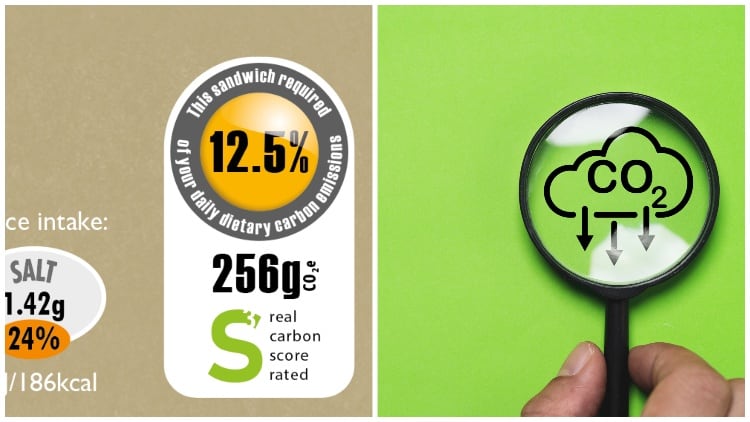Over the years there have been repeated examples of recalls in the food industry, one trend being Salmonella in chocolate.
In 2006 Cadbury recalled chocolate products, due to a contamination problem thought to be in their facility in Herefordshire. In 2017 Mars recalled a range of chocolate products due to a potential Salmonella outbreak.
In April 2022, Fererro Group recalled Kinder Surprise due to possible Salmonella contamination. This worldwide recall was thought to be due to a contamination issue at the Barry Callebaut processing facility in Belgium.
In December 2022, Lidl recalled a chocolate advent calendar due to possible Salmonella contamination. It’s unknown if this was linked to the Barry Callebaut problem.
These instances were widely publicised and there may be more instances that were not. Trying to identify them isn’t easy, so internet searches and information gathering from sources which are deemed to be credible, is the only way of painting a picture of what happened.
Providing learnings from previous incidents is one of the key aspects of training, and so, while carrying out research for the development of our chocolate food safety and HACCP courses I found that there was no information available from credible sources which could be used. In an era where food safety culture is promoted so intensively, it seems incomprehensible that learnings haven’t been published from a trend of recalls such as this, which has impacted food safety worldwide and caused sickness in the vulnerable.
Having exhausted all possible information sources I could think of, I consulted those in the chocolate industry. However, I found that those that I spoke to only knew snippets of information which had been passed along, here and there. Again, there wasn’t any shared information which could be relied upon as fact.
Over the years these chocolate recalls have had an impact on the standards. In 2015, BRCCGS Food Safety Issue 7 introduced ambient high care for the first time. The purpose of this was to highlight the cross-contamination risk of Salmonella from raw cocoa beans to processed chocolate products.
In 2018, when BRCGS published Issue 8 of the Food Safety standard, it introduced food safety culture for the first time. The purpose of this was to improve the industry’s mindset towards food safety. During the Cadbury court case the judge stated that more responsibility and care should have been taken by the business, which today we would interpret to mean that emphasis on positive food safety culture was required.
Taking the lead from BRCGS in 2019, GFSI published a position statement on food safety culture and included it in their benchmarking requirements. This meant that all businesses certified to a recognised GFSI certification standard had to implement food safety culture practices, not just those that were BRCGS.
A positive food safety culture within a business, promotes a way of working where staff feel that they can identify issues and share them with their peers and managers. This allows management to act and prevent issues from occurring or reoccurring.
Having the confidence to speak out and learn from our experiences are key aspects of food safety culture, and without question, this is what is expected of businesses within the food industry.
However, this way of working unfortunately stops with the individual businesses in the supply-chain. Those that set the standard don’t seem to abide by the same rules. They don’t promote a culture of shared learning – internally, or with their peers.
Imagine how powerful it would be, and what the landscape would look like – if those that set the standards actually practiced what they preached? If the Government bodies, GFSI and certification scheme owners such as BRCGS had their own food safety culture plan, where they put food safety first – before commercial considerations.
Government bodies such as the Food Standards Agency, the GFSI and certification scheme owners are privy to the details of recalls. The BRCGS even include a clause in their incident section which requires businesses to report recalls and significant food safety incidents to their certification bodies, so that they can be investigated. This means that they hold sufficient details to be able to understand the problem, its root cause and what preventive action must be taken. Therefore, they could, with the proper redaction, publish this information to the rest of the industry as shared learnings.
If they were to publish information about what caused the recall, the whole industry could benefit from this information. This would allow all businesses with a similar risk, to be able to put proactive actions in place, to stop further recalls occurring. Customers would also be able to verify with their supply chains that a sufficient level of proactive action has been put in place, to eliminate risk to their brand in the future.
If this kind of system was in place following the Cadbury recall in 2006, it may have prevented the subsequent recalls from happening.
I was at a conference recently, where a business was promoting a piece of software that would share data from incidents around the world. I thought this would be great idea, to have all the information coordinated in one place, so that it could be used by everyone. The problem was that it was a paid service - so it wasn’t freely available to all, and it only gave you the data in numbers. It didn’t provide the detail of why the incidents occurred, to enable action across the industry through shared learnings. At Techni-K, one of our values is "do the right thing, by putting morals before money". We believe that food safety comes before profit and this is why we make as much information freely available to the industry as possible, so that those who can’t pay for it, can still benefit from it.
During the presentation at the conference, a member of the audience even commented that the learnings from incidents was a competitive advantage, and it would never be shared. In my view, not sharing food safety learnings because of commercial reasons is totally contradictory to food safety culture. If a business must implement a recall, providing the relevant information should be mandatory, so that it can be shared across the industry for everyone to benefit from. After all, keeping the consumer safe must always be the number one priority.
In other news, a cider manufacturer was fined £1.4m after an employee was killed on his 65th birthday.




